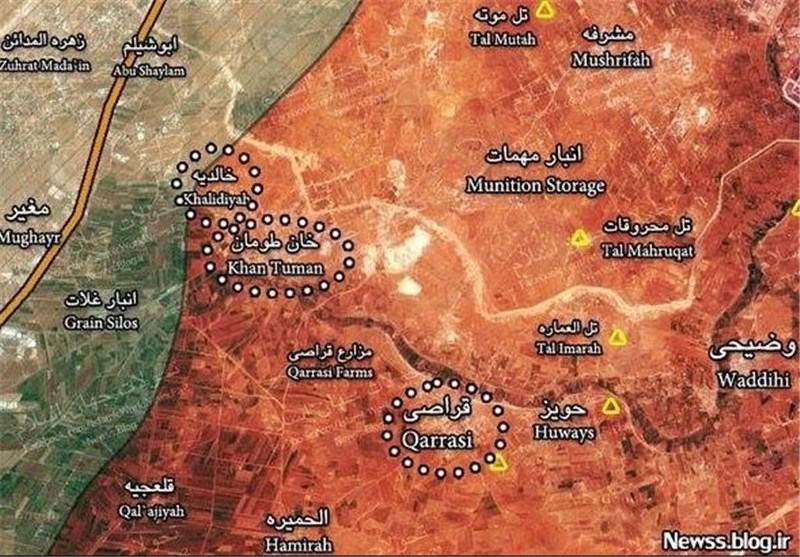Syrian Troops Regain Control of Strategic Area in Aleppo

The Syrian army, backed by popular forces, seized control of a key area in the northern province of Aleppo.
According to Tasnim dispatches, the Syrian troops on Sunday managed to retake Takfiri groups’ most important stronghold in the area of Khan Tuman after dealing a heavy blow to the militants in surprise attacks.
The report added that the latest development came after the army troops launched a major offensive against the terrorists on Saturday and succeeded in claiming the lives of hundreds of them after pushing deep into the territories under their control.
In addition, the Syrian army made advances toward the neighboring areas of Khan Tuman and could also bring the al-Ameriya hill under their control.
Khan Tuman’s capture would be a big boost to the Syrian army and it is believed that its liberation means a considerable portion of Aleppo has been so far cleared of the terrorists.
The Syrian military has since mid-October recaptured several areas in the north of the country from the Takfiri groups.
Syria has been gripped by civil war since March 2011 with Takfiri terrorists from various groups, including the ISIL, currently controlling parts of it.







